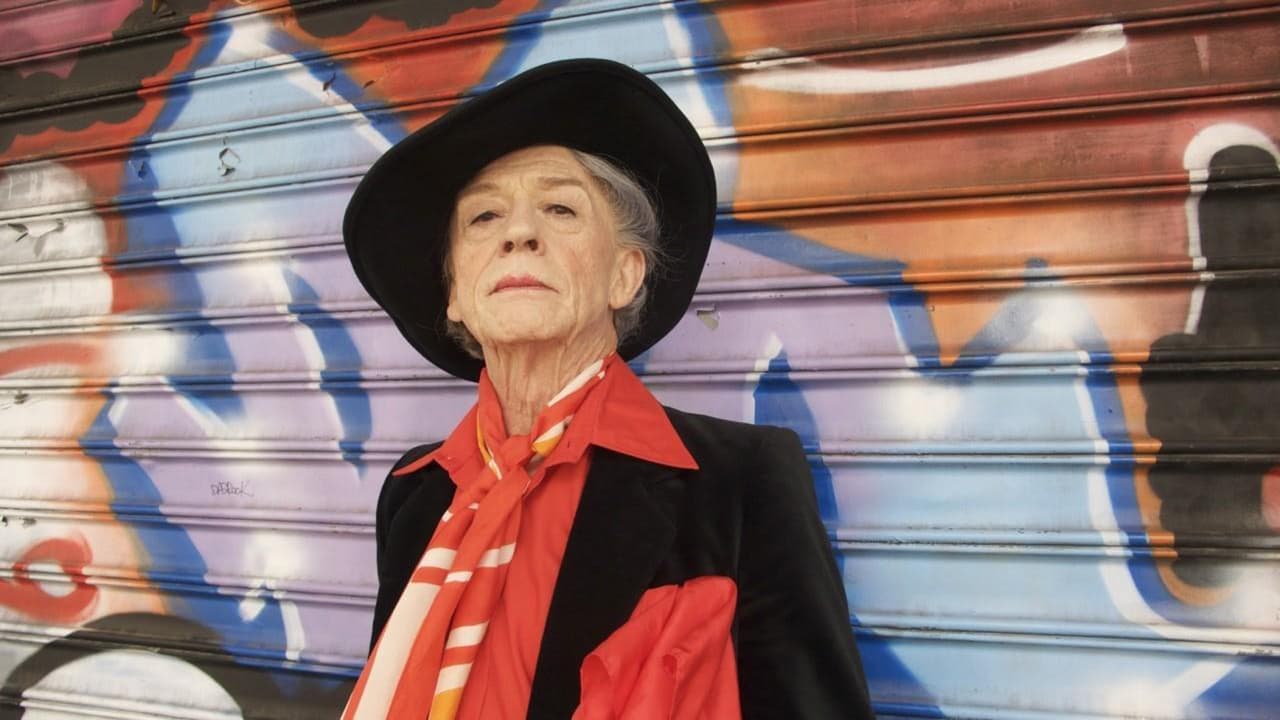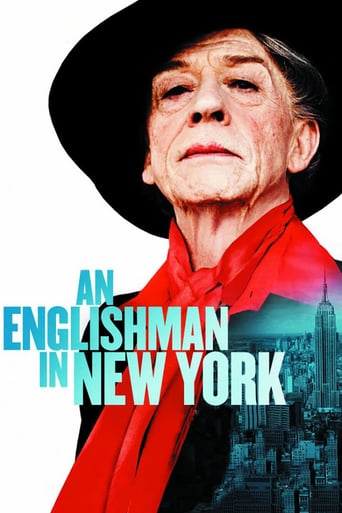

Overrated
... View Moreone of my absolute favorites!
... View MoreMostly, the movie is committed to the value of a good time.
... View MoreGreat movie. Not sure what people expected but I found it highly entertaining.
... View Morebitter, profound, fascinating. story of a guru. like modern parable. a character. and a great performance. map of small things. and a great arena. seed of dark joy because the story of Quentin Crisp is out of categories. it seems be a fairy-tale, page of a history of homosexual freedom war, testimony about values and traces of Oscar Wilde style, a manifesto about reality behind illusions, a form of silent protest against ordinaries warm lies. each of this aspects is present in this movie. a film like definition of an air. or, only, circle of a small refuge garden. nothing else. only reflection about real nature of world. an old man in a large city. and its gestures, words, trips. as pieces of a lesson about yourself. or shadows of a continuous search of truth sense.
... View MoreI thoroughly enjoyed this profile of flamboyant British raconteur Quentin Crisp, played mesmerizingly by William Hurt.Crisp can be inspiring to us all. He was openly gay before it became acceptable, and he risked his life to be out when he was. Any of us, regardless of sexual orientation, can be buoyed by his interesting challenges, i.e.,"Who would you be if the only opinion that mattered was yours?"..."Think of the people who've NEVER been used -- life's much harder for them!"Crisp was an original. Who, even these days, could draw crowds, night after night, that just want to hear him/her expound? This is a serious film that doesn't idealize its protagonist. Crisp was seriously humbled by his careless remark that AIDS was just a "fad." It was good that this comment didn't prove to be his undoing.I enjoyed the scenes between Hurt and Richard O'Hare, as an editor who eventually became the closest thing Crisp ever had to a son.This is a beautiful film and a great surprise.
... View MoreJohn Hurt inhabits this character completely. This is not a sequel to The Naked Civil Servant, it is a continuation of the story of Quentin Crisp. Quentin Crisp was a flamboyant and insightful 'homosexual' who, after spending the first 73 years of his life in not-so-gay, olde England, moved to New York and was embraced by the art and literary communities there. He spoke in quotable soundbites that challenged the world's assumptions, and people's perceptions of each other through the stories he told.His live performances were more of Q and A between himself and the audience, as he never failed to provide an opinion about any idea presented to him.This film fearlessly bases it's integrity on John Hurt's performance and he doesn't let anyone down. Having played Crisp previously in a film based on Crisp's own book, The Naked Civil Servant, Hurt "leaves nothing unpacked" in his rendition of Crisp. When I think of Crisp now, I see John Hurt's face.Story-wise, I found this film very informative about a less-public time in the life of a courageously defiant man who refused to let society keep him in the closet, both in England and the U.S. Finally I got some clarity on why Crisp fell out of favour during the beginning of the AIDS crisis. It's unfortunate that Crisp's analysis of AIDS as a "fad" turned out to be true in some ways. Perhaps the disease isn't a fad, but certainly people's fear and behavioural changes were temporary, as we now see in increasing infection rates of young people. If only his insights weren't treated as simplistic in the midst of panic, or if Crisp had had the fortitude (at 75) to lead a change in attitudes, the fight against this disease might have followed a different trajectory. Unfortunately that was not Crisp's role to play.If you enjoyed The Naked Civil Servant, you will likely find this film equally interesting. Hurt is remarkable, and Crisp's perspectives are still relevant.
... View MoreThis is a fascinating film on so many levels, but most notably (from a production point of view) because Hurt is reprising a role he played 35 years previously as a much younger actor. What makes the piece even more perfect is it picks up where the other film (The Naked Civil Servant) left off.Quentin Crisp – the one time naked life model and civil servant has gained celebrity due to his ITV film 'The Naked Civil Servant'. He is given the opportunity to fly to New York for one month to give talks; however once he arrives in the big apple he falls in love with a city which seems to offer him everything he ever dreamed of. Quentin quickly gains residency as 'a legal alien'. However, he faces some hard lessons about the vastly changing face of not only public homosexuality but also the world in general.My opinion of an Englishman in New York is it's a flawless piece of work. It's rare a film can deliver such a sharp, but honest message which is relevant to today's society. In the original 1975 piece, Quentin was abused and attacked by 'hetrosexual' society not only for being gay but being different. In an Englishman in New York everything has flipped. The heterosexual world seems (on the whole) to adore him and be accepting of his eccentric and overtly homosexual persona. However, now his victimisation comes from the gay community who are excluding their own if they do not fit the very strict criteria of what they deem 'attractive'. Once upon a time Quentin was celebrated in the gay community as a brave pioneer of human rights. Now he's seen as a ghastly old queen who represents every gay stereotype a homosexual man is fighting against.Hurt plays Crisps exasperation to this new rejection with perfect understated brilliance. It becomes very apparent that Quentin was fighting the cause for individuality and the colonisation of the gay community was not actually what he wanted. He seemed to long for a world where every individual was accepted on their own merits and not because they fit criteria of a certain group. WHen Quentin discovers the (seemingly) universal ambition of gay man is to be a caricatured clone of the male heterosexual stereotype – you can almost hear his eyes rolling. It's also saddening to watch the world speed by Crisp in fifth gear, as he tries to get his head around the aggressive "fad" that is AIDS. This lesson being a particularly poignant one he has to learn.Even after seeing 'The Naked Civil Servant' (20 years ago) I had always seen Quentin Crisp as representative of tolerance toward homosexuals. After seeing 'An Englishman in New York' I now see him as someone far more important. Crisp represents tolerance toward individuality and our right to be whoever we want to be without fear of exclusion. As the song says "If Manners maketh man as someone said, Then he's the hero of the day, It takes a man to suffer ignorance and smile Be yourself no matter what they say".
... View More